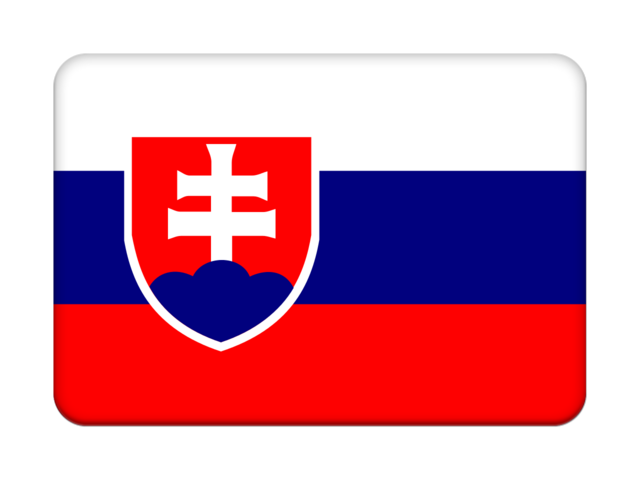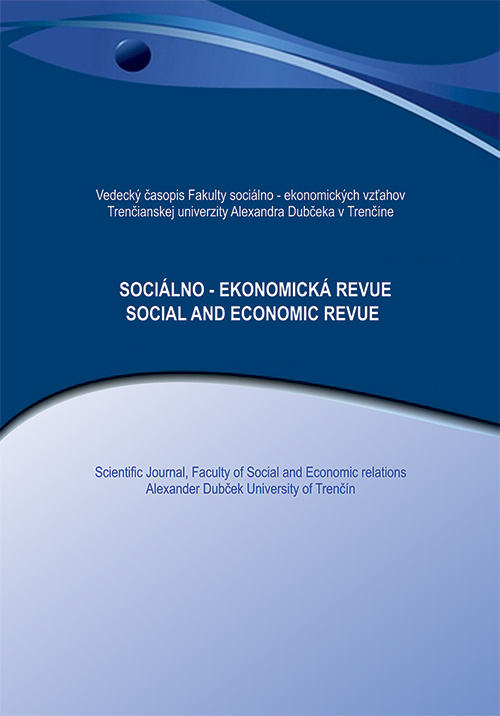TOWARDS A STRONGER SOCIAL ECONOMY IN LATVIA – PRACTICAL RECOMMENDATIONS FOR CLOSING INFORMATIONAL GAPS AND DRIVING SOCIAL ECONOMY
Social entrepreneurship has turned into a global movement hoping to fight various social and economic problems. Social enterprises combine a social mission with economic activities and often achieve their social impact and economic goals with limited resources, therefore an understanding of effective utilization of finances allocated for marketing purposes is extremely valuable but scarce. Social enterprises are also becoming increasingly recognized and researched in Latvia, however, marketing aspects have not been analyzed much and therefore are significant for enhancement of social economy in Latvia. The purpose of the research is to further investigate the most effective informational strategies for closing the informational gaps about social economy within Latvian society that were identified previously. Research methods used: analysis of scientific publications and previously conducted research and analysis of survey results conducted by Kristīne Casno. Research results indicate that the previously identified top three most preferred information channels (social networks, television and radio respectively) are equally effective for informing consumers with both low and high awareness levels of social economy in Latvia, except for a few nuances that are identified by Authors.
Release: 2021/2 Pages: 15-28 JEL classification: M14; M31; M38
DOI: https://doi.org/10.52665/ser20210202
Keywords: Social enterprise, social economy, information channels, social entrepreneurship, survey
Section:
Contacts:
Kristīne, Casno, Mg.sc.admin., cand. for doctoral student
University of Latvia, Faculty of Business, Economics and Management
Aspazijas bulv.5, Riga, LV-1050
E-mail: kristine_casno@yahoo.com
Daina, Šķiltere, Dr. oec. Professor
University of Latvia, Faculty of Business, Economics and Management
Aspazijas bulv.5, Riga, LV-1050
E-mail: Daina.Skiltere@lu.lv
Biruta, Sloka, Dr. oec. Professor
University of Latvia, Faculty of Business, Economics and Management
Aspazijas bulv.5, Riga, LV-1050
E-mail: Biruta.Sloka@lu.lv
Literature:
Blagoycheva, H. (2019). Social enterprises’ position in regional sustainable development. Trakia Journal of Sciences, 17 (1), 488–495.
Bosma N., Schøtt, J., Terjesen, S., Kew, P. (2016). Global Entrepreneurship Monitor: Special Report on Social Entrepreneurship. 44p. [acc.: 2020-01-05] Retrieved from: https://www.gemconsortium.org/report/49542
Calò, F., Teasdale, S., Donaldson, C., Roy, M. J., Baglioni, S. (2018). Collaborator or competitor: Assessing the evidence supporting the role of social enterprise in health and social care. Public Management Review, 20 (12), 1790-1814.
Calò, F., Roy, M. J., Donaldson, C., Teasdale S., Baglioni, S. (2019). Exploring the contribution of social enterprise to health and social Care: a realist evaluation. Social Sciences & Medicine, 222, 154-161.
Casno, K., Šķiltere, D., Sloka, B. (2019)-a. Factors that motivate Latvian consumers to purchase products and services from social enterprises in Latvia: The case of socially responsible consumption. European Integration Studies, 13, 90-99.
Casno, K., Šķiltere, D., Sloka, B. (2019)-b. The information channels that matter: The case of social enterprise customers in Latvia. Regional Formation and Development Studies, 3 (29), 21-34.
Casno, K., Šķiltere, D., Sloka, B. (2020). The power of information: A key component for the successful performance of Latvian social enterprises. University of Latvia Conference proceedings (in print).
Castellas, E. I., Ormiston, J., Findlay, S. (2018). Financing social entrepreneurship: The role of impact investment in shaping social enterprise in Australia. Social Enterprise Journal, 14 (2), 130-155.
Dacin, P. A., Dacin, M. T., Matear, M. (2010). Social entrepreneurship: Why we don’t need a new theory and how we move forward from here. Academy of Management Perspectives, 24 (3), 38-41.
Defourny, J., Nyssens, M. (2017). Fundamentals for an international typology of social enterprise models. Voluntas: International Journal of Voluntary & Nonprofit Organizations, 28 (6), 2469–2497.
Dobele, L., Pietere, A. (2015). Competitiveness of social entrepreneurship in Latvia. Regional formation and development Studies, 17 (3), 40-50.
Dobele, L., Dobele, A. (2014). Economic gains from social entrepreneurship development in Latvia. Regional Formation and Development Studies, 14 (3), 30-39.
Dobele, L. (2013). Social entrepreneurship development possibilities in Latvia. Summary of the Doctoral Thesis for the scientific degree of Dr. oec. Jelgava, Latvia University of Agriculture. 113p.
European Commission (2020). Internal Market, Industry, Entrepreneurship and SMEs Social Economy in the EU. [acc.: 2020-01-05] Retrieved from: https://ec.europa.eu/growth/sectors/social-economy_en
Gonçalves, C., Carrara, K., Schmittel, R. (2016). The phenomenon of social enterprises: Are we keeping watch on this cultural practice? Voluntas: International Journal of Voluntary & Nonprofit Organizations, 27 (4), 1585–1610.
Kerlin, J. A. (2010). A comparative analysis of the global emergence of social enterprise. Voluntas, 21, 162-179.
Līcīte L. (2018) –a. Social enterprises and their ecosystems in Europe. Updated Country Report: Latvia. Luxembourg: Publications Office of the European Union. 119p.
Līcite, L. (2018)-b. Theoretical Models of Social Enterprises in Latvia. Research for Rural Development, 2, 180-186.
Lis, A., Wallberg, N., Nordström, T., Šuvajevs, A., Ūlande M. (2017). Social enterprises and municipalities: cooperation, partnerships and synergies. Social Entrepreneurship Association of Latvia. [acc.: 2020-23-04]. Retrieved from: http://se-forum.se/wp-content/uploads/2018/03/SEandMunicipalities-EN.pdf
Macaulay, B., Mazzei, M., Roy, M. J., Teasdale, S., Donaldson, C. (2018). Differentiating the effect of social enterprise activities on health. Social Science & Medicine, 200, 211-217.
Mitchell, A., Madill, J., Chreim, S. (2015). Marketing and social enterprises: implications for social marketing. Journal of Social Marketing, 5 (4), 285-306.
Monroe-White, T., Zook, S. (2018). Social enterprise innovation: A quantitative analysis of global patterns. Voluntas: International Journal of Voluntary & Nonprofit Organizations, 29 (3), 496–510.
Nicholls, A. (2006). Social Entrepreneurship: New Models of Sustainable Social Change. New York: Oxford University Press. 444 p.
Powell, M., Osborne, S. P. (2014). Can Marketing Contribute to Sustainable Social Enterprise? Social Enterprise Journal, 11 (1), 24-46.
Register of Social Enterprises. Statistical data up to 30.04.2020. Ministry of Welfare of Republic of Latvia. [acc.: 2020-01-05] Retrieved from: http://www.lm.gov.lv/lv/es-finansejums/lm-istenotie-projekti/aktualie-projekti/esf-projekts-atbalsts-socialajai-uznemejdarbibai/socialo-uznemumu-registrs
Reichel, J., Rudnicka, A., Socha, B. (2019). Are social economy organizations a viable alternative on the labour market for students from non-economic fields of Study? Research Results. Visegrad Journal on Bioeconomy and Sustainable Development, 8 (1), 2-7.
Saebi, T., Foss, N. J., Linder, S. (2019). Social entrepreneurship research: Past achievements and future promises. Journal of Management, 45 (4), 70–95.
Seibel, K. (2019). Social enterprise: A route to systems change for women formerly incarcerated. Colombia Social Work Review, 17 (1), 16-27.
Saeima (Parliament of Republic of Latvia), 2017. Sociālā uzņēmuma likums (Social Enterprise Law), accepted 12.10.2017. [acc.: 2020-01-05] Retrieved from: http://m.likumi.lv/doc.php?id=294484
Tkacz, M. (2016). New generation of social entrepreneurs: Exploratory research and cross case study analysis of new generation of social enterprises. Ekonomia Społeczna, 2, 20-37.
Tucker, J. D., Fenton, K. A, Peckham, R., Peeling, R. W. (2012). Social entrepreneurship for sexual health (SESH): A new approach for enabling delivery of sexual health services among most-at-risk populations. PLoS Medicine, 9 (7), 1-6.
Young, D., Lecy, J. (2014). Defining the universe of social enterprise: Competing metaphors. Voluntas: International Journal of Voluntary & Nonprofit Organizations, 25 (5), 1307–1332.


